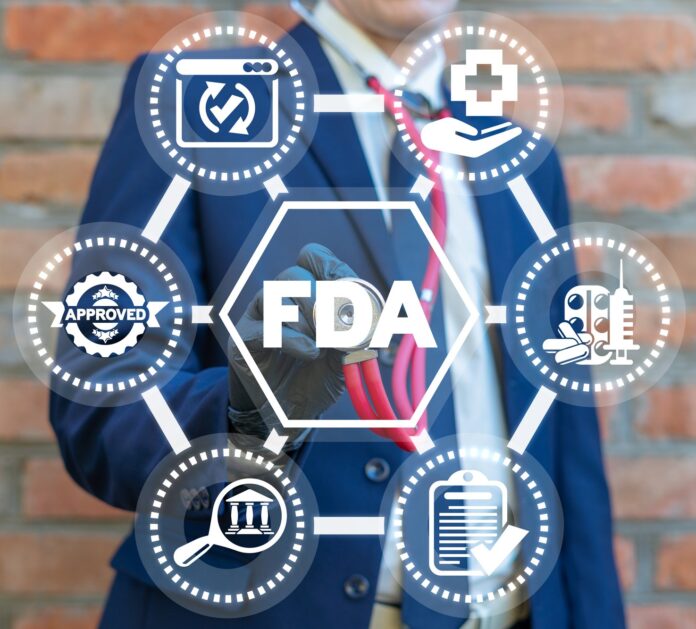Overview of FDA Inspections
The U.S. Food and Drug Administration (FDA) conducts inspections to ensure that products such as food, drugs, cosmetics, and medical devices meet the required safety and efficacy standards. These inspections are a critical component of the regulatory framework.
Importance of FDA Inspections
FDA inspections are essential because they help verify that companies comply with the laws and regulations governing their products. These inspections ensure that products are safe for consumption and use, thus preventing harm to consumers and maintaining the integrity of the supply chain.
Purpose and Goals of FDA Inspections
The primary goals of FDA inspections are to assess the quality and safety of products, ensure that manufacturing processes adhere to good manufacturing practices (GMP), and identify any potential risks that could compromise product safety. These inspections also help identify and correct any non-compliance issues, thereby enhancing overall product quality and safety.
FAQ 1: What is an FDA Inspection?
Types of FDA Inspections
Pre-Approval Inspections
These are conducted before a new product is approved for market entry. They ensure that the manufacturing facilities and processes meet the required standards.
Routine Inspections
Regularly scheduled inspections to verify ongoing compliance with regulatory standards.
For-Cause Inspections
Compliance Follow-Up Inspections
FAQ 2: Why Are FDA Inspections Conducted?
Ensuring Compliance
FDA inspections are conducted to ensure that companies comply with federal regulations.
Protecting Public Health
Inspections help protect public health by ensuring the products. Many manufactured in environments that prevent contamination and that they meet safety standards.
FAQ 3: What Triggers an FDA Inspection?
Routine Surveillance
Regular inspections are part of the FDA’s ongoing surveillance program to ensure continuous compliance with regulatory standards.
Consumer Complaints
Complaints from consumers can prompt an FDA inspection to investigate potential issues with a product.
Adverse Event Reports
Reports of adverse events associated with a product can lead to an inspection to determine if there are underlying issues with the manufacturing process or product quality.
FAQ 4: How to Prepare for an FDA Inspection?
Employee Training
Ensuring that all employees are well-trained on compliance and regulatory standards is crucial for passing an FDA inspection.
Document Readiness
Maintaining organized and up-to-date documentation is essential for a smooth inspection process.
Facility Cleanliness
Keeping the facility clean and well-maintained is vital as it reflects the company’s commitment to quality and safety.
FAQ 5: What Happens During an FDA Inspection?
Initial Meeting
The inspection begins with an initial meeting where the FDA inspector outlines the purpose and scope of the inspection.
Facility Tour
The inspector will tour the facility to observe operations and assess compliance with regulatory standards.
Document Review
The inspector will review various documents, including production records, quality control logs, and employee training records.
Interviews with Staff
Interviews with staff members help the inspector understand the company’s processes and compliance practices.
FAQ 6: What Are Common Findings in FDA Inspections?
Documentation Issues
Common findings include incomplete or inaccurate documentation, which can indicate poor quality control.
Sanitation and Hygiene Problems
Issues with sanitation and hygiene can lead to contamination risks, which are serious concerns for the FDA.
Manufacturing Process Deviations
Deviations from approved manufacturing processes can compromise product quality and safety.
Labeling Errors
Incorrect or misleading labeling is a common finding that can result in consumer misinformation and health risks.
FAQ 7: What Are the Consequences of Failing an FDA Inspection?
Product Recalls
In severe cases, the FDA can mandate a product recall to protect consumers from unsafe products.
Legal Actions
Non-compliance can lead to legal actions, including fines and injunctions, against the company.
FAQ 8: How to Respond to FDA Inspection Findings?
Corrective Action Plans
Developing and implementing corrective action plans to address the findings is crucial for resolving compliance issues.
Communication with FDA
Maintaining open and transparent communication with the FDA is important for addressing and resolving findings effectively.
Documentation of Changes
Documenting all changes and corrective actions taken in response to the inspection findings is essential.
Follow-Up Inspections
The FDA may conduct follow-up inspections to ensure that the corrective actions have been implemented and are effective.
FAQ 9: How Can On-Hold Shipments Be Resolved?
Identifying the Cause
Determining the reason for the hold is the first step in resolving the issue.
Corrective Measures
Implementing the necessary corrective measures to address the issues identified by the FDA.
Reinspection Requests
Requesting a reinspection from the FDA to verify that the corrective actions have been successfully implemented.
FAQ 10: What Are the Best Practices for Ongoing FDA Compliance?
Continuous Training
Providing ongoing training for employees on regulatory requirements and best practices is essential for maintaining compliance.
Keeping Up-to-Date with Regulations
Staying informed about changes in FDA regulations and guidelines is crucial for ongoing compliance.
Engaging Compliance Consultants
Hiring compliance consultants can provide expert guidance and support in maintaining FDA compliance.
Conclusion
Recap of Key Points
FDA inspections play a vital role in ensuring that products meet safety and efficacy standards, protecting public health, and maintaining consumer trust. Understanding the purpose, process, and implications of FDA inspections is crucial for companies to remain compliant and avoid potential penalties.
Importance of Compliance
Compliance with FDA regulations is not only a legal requirement. A critical aspect of maintaining product quality and consumer safety. Companies must prioritize compliance to protect their reputation and ensure the success of their products in the market.
Final Thoughts and Call to Action
Staying prepared for on-hold shipments through regular internal audits, continuous training, and staying informed about regulatory updates is essential for ongoing compliance. Companies should take proactive steps to address potential issues and work closely with the FDA to ensure that their products meet the highest standards of quality and safety.

